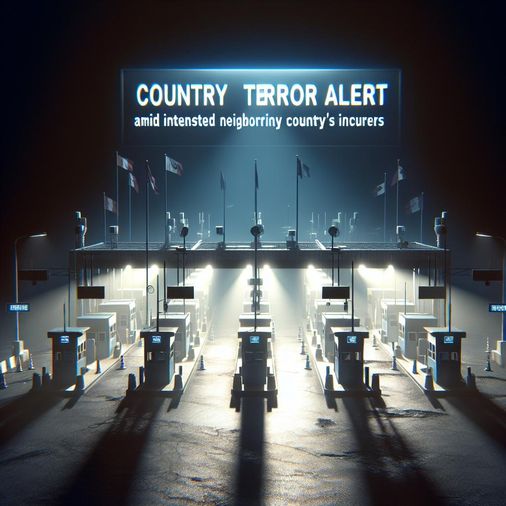Russia Declares Terror Alert in Border Regions Amid Intensified Ukrainian Incursions

On Saturday, the National Anti-Terrorism Committee of Russia announced a heightened state of alert for terrorism in the border regions of Belgorod, Bryansk, and Kursk. This measure is a direct response to what officials describe as unprecedented incursions by Ukrainian forces into Russian territory in the aftermath of the ongoing conflict that began with Russia's invasion of Ukraine.
The committee's statement, as reported by Interfax, highlights the need for security measures to counter what it calls an attempt by Ukraine to destabilize the situation in these regions, particularly Kursk, where recent skirmishes have reportedly resulted in civilian casualties, damage to residential buildings, and other infrastructure. To protect citizens and counter potential terrorist activities by Ukrainian sabotage and reconnaissance units, Russian security forces are now empowered to implement strict measures.
According to the announcement, security forces can restrict movement, suspend residents' rights to privacy, and are permitted to carry out operations such as surveillance of communications and computer tracking, along with the ability to detain individuals without identification. Furthermore, these forces can forcibly relocate local residents to safe zones, reflecting the gravity of the situation.
Current developments indicate that Kursk has been under a state of emergency since August 7, triggered by reported incursions of approximately 300 Ukrainian troops, along with armored vehicles, across the border near the Sumy region. Russian reports claim that these assaults have caused five fatalities and numerous injuries, including children, with the local healthcare system now strained to address the surge in casualties.
The Ministry of Defense in Russia also reported significant military activities, including the downing of several Ukrainian drones and the arrival of additional military equipment and reinforcements in Kursk, designed to bolster defenses against ongoing threats. Russian military sources allege that Ukrainian forces have advanced approximately 37 kilometers into Russian territory, although Ukraine has not confirmed these claims.
In another critical area near the city of Sudzha, which is a vital point for gas supplies to Europe, fighting has caused a spike in natural gas prices, fueled by fears of supply disruptions. On the energy front, the Russian nuclear corporation has affirmed that operations at the Kursk nuclear power plant continue without disruptions despite the volatile security environment.
In response to these developments, Ukrainian President Volodymyr Zelensky convened security council meetings to discuss the nation's defensive strategies. He commented on the ongoing military efforts, highlighting the increase in battlefield successes, including capturing Russian soldiers as part of their military initiative.
Internationally, there appears to be a broad spectrum of support for Ukraine's actions. While the U.S. government does not endorse long-range attacks into Russian territory, support remains for Ukraine exercising its right to defend itself against perceived aggressions. European officials echo this sentiment, affirming Ukraine's right to respond militarily wherever it sees fit.
As the situation continues to evolve, the implications of these military actions on both domestic and international fronts remain significant, raising ongoing concerns about regional stability and security. Efforts by Russian authorities to control the narrative and maintain public safety amid escalating military engagements underscore the tense atmosphere in this conflict-embroiled region.
Related Sources:
